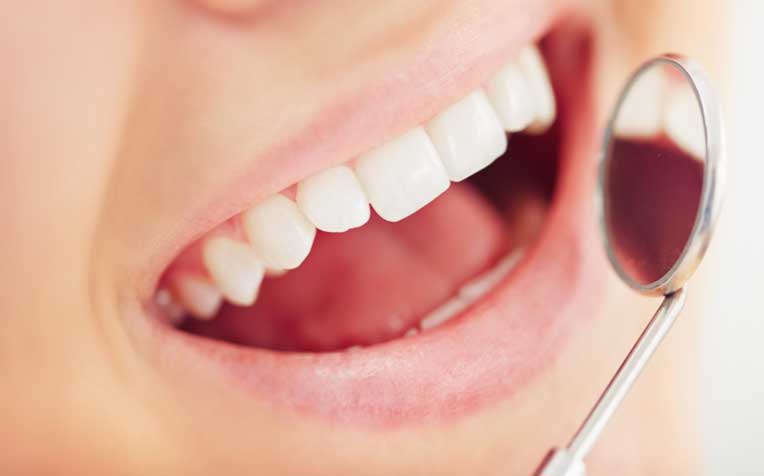HealthXchange will NEVER ask you to transfer money over a call. If in doubt, call the 24/7 ScamShield helpline at 1799, or visit the ScamShield website at www.scamshield.gov.sg.
Good Oral Hygiene, Lesser Risk of Chronic Diseases

Poor oral habits can lead to gum diseases.
Not brushing your teeth enough, snacking on sweet foods constantly and not visiting the dentist often – all these constitute poor oral hygiene. Some of us are not very bothered by this, but what if you are told that poor oral hygiene may be linked to cancer?
A study called The Association Of Dental Plaque With Cancer Mortality, published in June in Sweden, suggests that poor oral hygiene may be associated with premature death from cancer. The study found that the accumulation of high levels of bacterial plaque (the biofilm of bacteria) on teeth surfaces and in the gingival pockets (the crevices around a tooth, between the wall of unattached gum tissue and the enamel of the tooth) over many years, may have a role in causing cancer.
Dental plaque linked to serious medical risks: cause for worry?
"The good news is that the study does not prove whether oral plaque levels directly or indirectly contribute to death due to cancer", said Dr Chee Hoe Kit, Consultant, Periodontic Unit, National Dental Centre Singapore (NDCS), a member of the SingHealth group. "The interesting thing about the study is that it did find that those who died from cancer had significantly poorer dental hygiene at the beginning of the study than those who survived."
"Overall, it can be inferred that, in cancer patients, poor oral hygiene may be associated with an increased risk of dying. But more research is needed to confirm the findings and determine if there is a causal link in the observed association."
He added that periodontal (gum) disease has been associated with other medical risks in the last decade. Studies have associated it with chronic inflammatory conditions, such as diabetes and heart disease, as well as with stroke, osteoporosis, respiratory diseases and pre-term low birth rates. Dr Chee said: "Some studies show that pregnant mothers with untreated existing gum diseases may deliver smaller or premature babies."
Poor oral hygiene and uncontrolled gum disease may also exacerbate diabetes and worsen blood sugar levels.
"I have had patients who’ve come to me unaware that they might already have diabetes," said Dr Chee. "If patients have a family history of diabetes, and if I find they have severe gum disease, I would urge them to go to a polyclinic or their family doctor for a fasting blood glucose test, to rule out the possibility of diabetes. This is important, as gum disease is one of the complications of diabetes."
He added that blood vessels in the gums are linked to the body’s larger blood vessels. Bacteria from gum diseases can pass through oral crevices in the gum, enter the bloodstream and travel to other parts of the body.
Read on for tips to good oral hygiene.
Ref. T12
Contributed by
Related Articles
Public Events
Get the Health Buddy App
© 2025 SingHealth Group. All Rights Reserved.


















 Get it on Google Play
Get it on Google Play